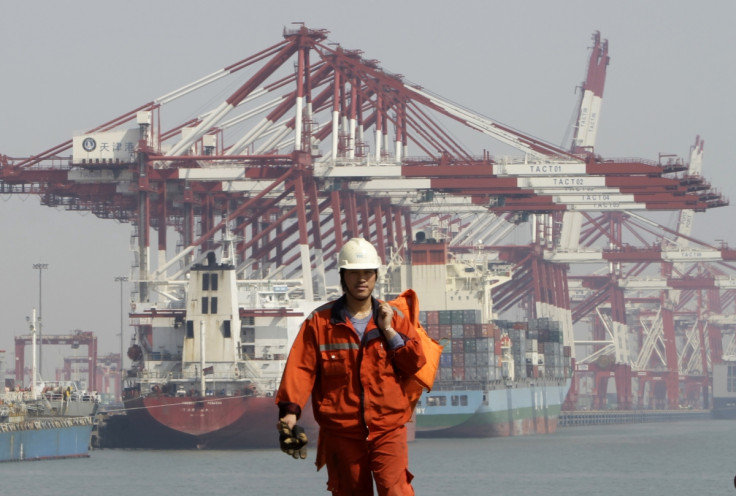Qingdao Probe: China Commodity Scandal Spreads to Petrochemicals as Banks Get Spooked

The financial scandal sweeping through China's commodities businesses has spread to the petrochemicals sector, after authorities launched an investigation in the northern city of Tianjin,
Police are reported to be probing the import of mixed aromatics, a product used for blending petrol, amid suspicion over the fraudulent use of commodity stocks as collateral for debt finance.
It's the latest in a line of investigations which have rocked China's commodity sector and which have seen the shadowy industry and how it is financed, come under intense scrutiny.
A probe is ongoing in Qingdao, one of China's largest ports, into allegations that a commodity traders used duplications of warehouse receipts to borrow multiple times on the back of a single cargo of iron ore. The case in Tianjin is not thought to be on the same scale, but will add fuel to a fire of concern creeping through those connected with China's commodity sector.
Banks have been spooked as to how common the malpractice is. Last week Standard Chartered revealed that it has $250m worth of commodity-related exposure related Qingdao Port.
Citi, HSBC and Standard Bank also responded to the investigation by announcing increased diligence over lending practices. This has resulted, already, in a retrenchment from the financing of what was for banks a lucrative trade.
The case at the centre of the Qingdao probe is clearly illegal, but it reflects a wider issue of collateral trade, which is legal, but highly distortionary.
Collateral trade is when companies borrow money, using a commodity as collateral, then use the loan to fund its general operations, or sometimes to invest in a more lucrative asset, such as property.
The practice is commonly used as a method of interest rate arbitrage, whereby Chinese companies borrow on the back of commodity stocks, in foreign currency (usually US dollar), then invest the finance in Chinese assets with a view to making a profit through interest rate differential before the loan expires.
This has become more common since the Fed brought interest rates to historic lows while simultaneously, the People's Bank of China (PBOC) increased them in an effort to reduce the amount of cheap liquidity on the Chinese market. The margins became wider and companies could profit more easily.
The commodity itself is often stockpiled: used solely as a money-borrowing mechanism. Because the practice keeps demand strong (even if the commodity isn't being used), the price of the commodity is artificially inflated.
The practice is common across iron ore, copper, rubber and even soft commodities such as grain, corn and soy beans.
In a recent report, financial advisory firm Polarwide wrote: "The 'collateral trade' has been a major component of the financing required to support China's $10tn lending boom over the past 5 years. The volumes involved are huge – China has been buying two-thirds of the world's supply of iron ore, and has been responsible for 40% of global copper market demand. Reuters has suggested that 100 million tonnes of iron ore are currently "off-market" by being tied up in the 'collateral trade'. This volume is enough to build 1200 buildings the size of New York's Empire State building."
The firm goes on to warn that the "collateral trade seems now to be in danger of imploding" and given the substantial investment that it has spawned in the property sector, it could take the housing market with it.
"It makes it difficult to estimate what's happening with Chinese consumption. You look at imports and it looks like it's growing strongly but you don't know how much of that will be used physically or put into store. It seems very likely that there are unreported stockpiles around," Capitals Economics commodity analyst Caroline Bain tells IBTimes UK.
Iron ore prices have been plunging all year due to a surplus in supply, but copper fell as a direct result of the Qingdao investigation. Prices have stabilised somewhat with no further malpractice having been announced in the port, but some suspect that the so-called 'Qingdao Whale' could be the tip of the iceberg.
Markets are also awaiting confirmation that China will scrap its policy of stockpiling corn, which is expected to come in the next weeks.
It's estimated that China holds more than half of the world's corn stocks in reserve, in a bid to ensure food security and feed rural workers. Reserves have grown so large, though, storage facilities are overflowing.
An end to this practice would mean an end to artificially high prices, which would have a massive effect on corn farmers across the world.
We are reaching what would appear to be a Rubicon moment for China's commodities story.
© Copyright IBTimes 2024. All rights reserved.






